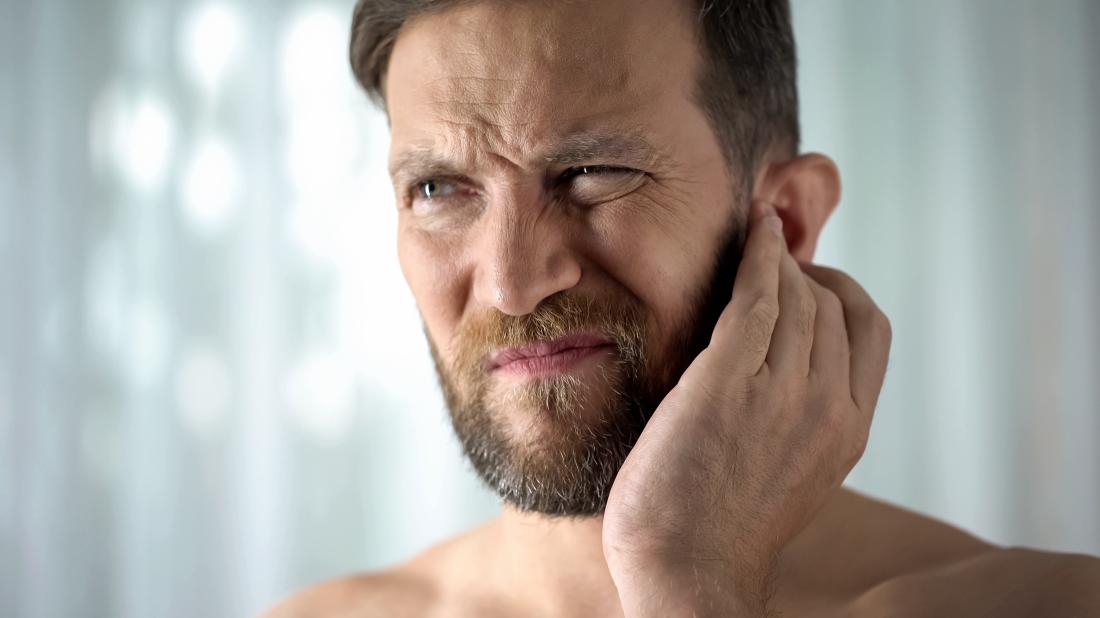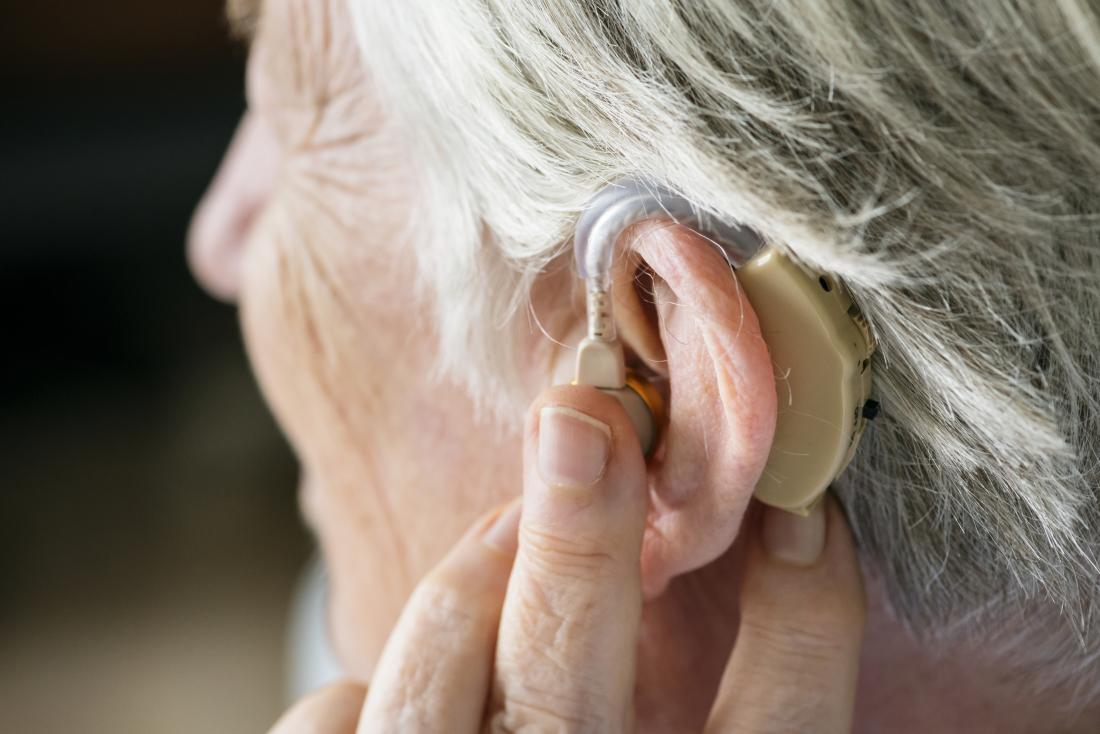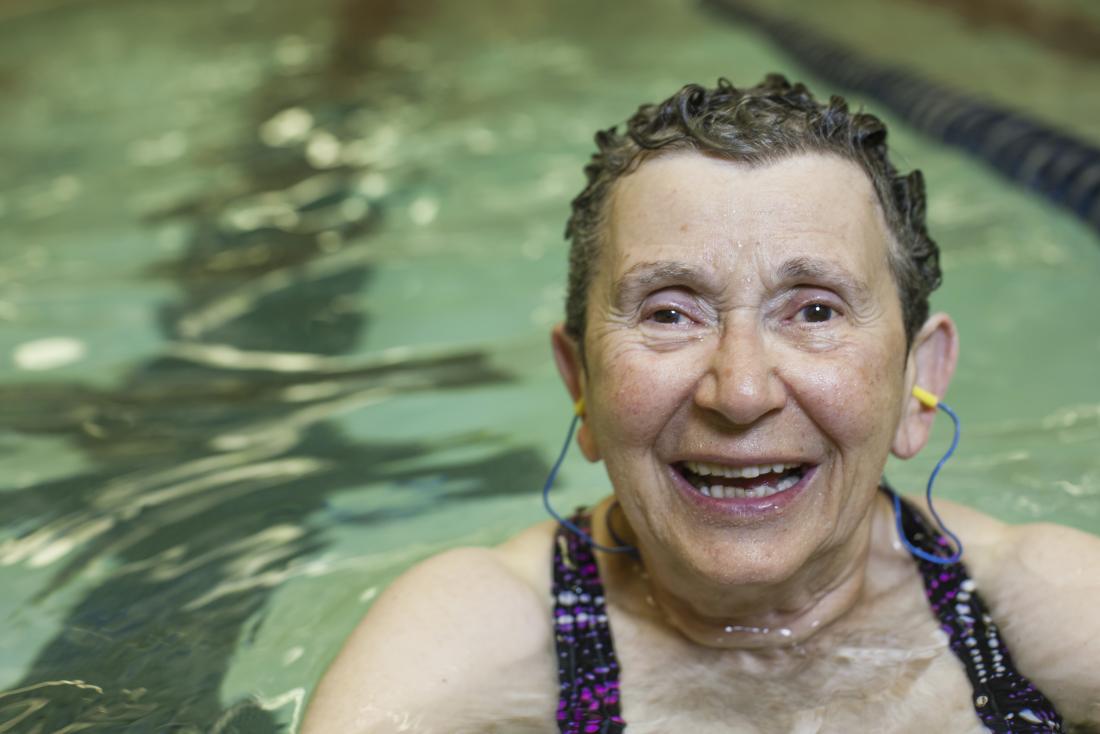Treatment for itchy ears depends on the underlying cause and may include ear drops, antibiotics, or syringing.
In this article, learn about the causes of itchy ears, as well as which treatments and home remedies can help.
Causes
Causes of itchy ears can include:
1. Ear infections

A person may have itchy ears as the result of an infection.
Itchy ears can sometimes be due to an infection or a sign that one is developing.
Bacteria and viruses can cause ear infections in conjunction with a cold or flu. Infections can also occur if someone has water trapped in their ear or a buildup of earwax.
Chronic ear infections are recurring and may require medical treatment.
2. Dry ears
Ears usually produce oil and earwax to keep the ear clean and healthy. If people clean their ear too much, it can remove the wax from the ear and dry it out, causing irritating itchiness.
Other people may not produce enough ear wax naturally, resulting in dry ears. If people have dry ears, they may notice flakes of dry skin around their ear.
3. Food allergies
An allergic reaction to a certain food can cause people to have itchy ears. Common food allergies include:
- nuts
- milk
- fish and shellfish
- wheat
- soy
People may also experience itchiness on the rest of the face. Some people develop hives.
Oral allergy syndrome is a type of allergic reaction related to pollen that typically causes itchiness around the mouth, but some people also report having itchy ears.
Common foods that cause oral allergy syndrome include:
- fruits, such as apples, melons, cherries, kiwi, and bananas
- sunflower seeds
- almonds
- hazelnuts
If a person has trouble breathing after eating or coming into contact with an allergen, they may be experiencing anaphylaxis. This is a medical emergency and requires immediate care.
4. Earwax blockage
A buildup of earwax can cause itchy ears and affect a person’s hearing.
The ears produce earwax to help keep the ear clean and protect the inner ear from infection. Earwax naturally moves out of the ear, carrying dead skin cells and debris, where it will then dry out and fall away over time.
A buildup of earwax can happen if people stick something into their ear canal, which is the small tunnel that connects the outer ear to the middle and inner ear.
If people insert a cotton swab, bobby pin, finger, or twisted cloth into their ear, it can irritate the ear canal and push earwax farther back, causing a blockage.
An earwax blockage can trap bacteria in the ear and cause an infection.
5. Hearing aids

The plastic coating on hearing aids can sometimes cause itchy ears.
Hearing aids can sometimes cause itchy ears because of their plastic coating. Some people may have sensitive skin or a mild allergic reaction to the material.
People wearing hearing aids may also experience itchy ears if water gets trapped behind the hearing aid.
If people have an itchy ear due to pressure from the hearing aid, a specialist can remold the hearing aid so that it fits better.
6. Swimmer’s ear
If water gets trapped in the ear, it can cause a condition called acute otitis externa. This condition is also known as swimmer’s ear because it frequently affects swimmers.
Bacteria can multiply in the trapped water, causing an infection.
Swimmer’s ear can make the ear feel very itchy. If people have swimmer’s ear, they may also notice the following symptoms:
- pain in the ear
- pain in the neck, face, or head
- inflammation around the ear
- ear feels blocked
- drainage from the ear
- difficulty hearing
7. Allergic rhinitis
Allergic rhinitis, also known as hay fever, happens when people have an allergic reaction to common particles found in the air, such as pollen, dust mites, or animal fur.
It can cause itchiness in the ears, eyes, and throat, along with:
- watery eyes
- a runny nose
- headaches
- sneezing
- congestion
People may also experience itchy ears due to congestion caused by a common cold. This will usually pass as people recover from the cold.
8. Skin conditions
People who have a skin condition in this area might experience itchy ears. Some people might also notice inflamed, scaly patches on or around the ear.
Conditions that may cause itchy ears include:
Treatments and home remedies
People may be able to treat some cases of itchy ears with home remedies.
If skin dryness causes itchy ears, try putting a few drops of olive oil or baby oil on their ear.
A drop of oil can also help relieve itchiness due to hearing aids. The oil should not touch the hearing aid, however, so it is best to apply the drops before going to bed.
People should also ensure they get their hearing aid correctly fitted for their ear, as an ill-fitting hearing aid can cause irritation. A doctor can also help determine if a person is having an allergic reaction to their hearing aid.
People can clean their outer ear using a cloth, but should not insert anything into the ear canal. If earwax is blocking the ear, a few drops of baby oil or over-the-counter (OTC) ear drops can loosen the wax.
If this is not effective, a doctor may syringe a saline solution into the ear to flush out the excess earwax. People can also do this procedure at home with an irrigation kit.
If a skin condition, such as psoriasis, is causing an itchy ear, people may need to use a topical medication to treat the condition.
People with swimmer’s ear may be able to relieve itchiness by applying drops of a mildly acidic solution consisting of half rubbing alcohol and half vinegar. This can help to dry out excess water in the ear.
If this treatment does not work, or if people have another type of ear infection, prescription ear drops or antibiotics can help.
People with itchy ears due to allergic rhinitis may need antihistamines to manage their condition. If food allergies are causing itchy ears, people can track their diet and symptoms to identify which foods trigger symptoms.
If home treatments provide no relief or if people are experiencing more severe symptoms, such as any pain or loss of hearing, they should see their doctor.
Prevention

Wearing ear plugs when swimming reduces the risk of getting swimmer’s ear.
People can lower the risk of itchy ears and ear infections by not sticking anything into their ears, including:
- cotton swabs
- bobby pins
- toothpicks
- pencils
- ear candles
- twisted cloths
Inserting items into the ear can remove protective earwax, damage the ear, and push earwax deeper into the ear.
If people repeatedly get itchy ears or a buildup of earwax, they can see an ear specialist who can clean their ears.
People can reduce their chances of getting swimmer’s ear by:
- wearing ear plugs when swimming
- using a hair dryer on low heat at a distance to dry the inside of the ears after getting wet
- using a clean towel to dry the outside of the ears
Summary
If people have persistently itchy ears, they should see a doctor to find out the underlying cause. People may be able to relieve itchiness at home by using a few drops of baby oil or olive oil. OTC eardrops may also help.
If an infection is causing the itchiness, a person may require antibiotics. In cases of earwax blockage, a doctor can safely remove the earwax and provide prevention tips.
Most causes of itchy ears clear up quickly with home remedies or treatment from a doctor.
